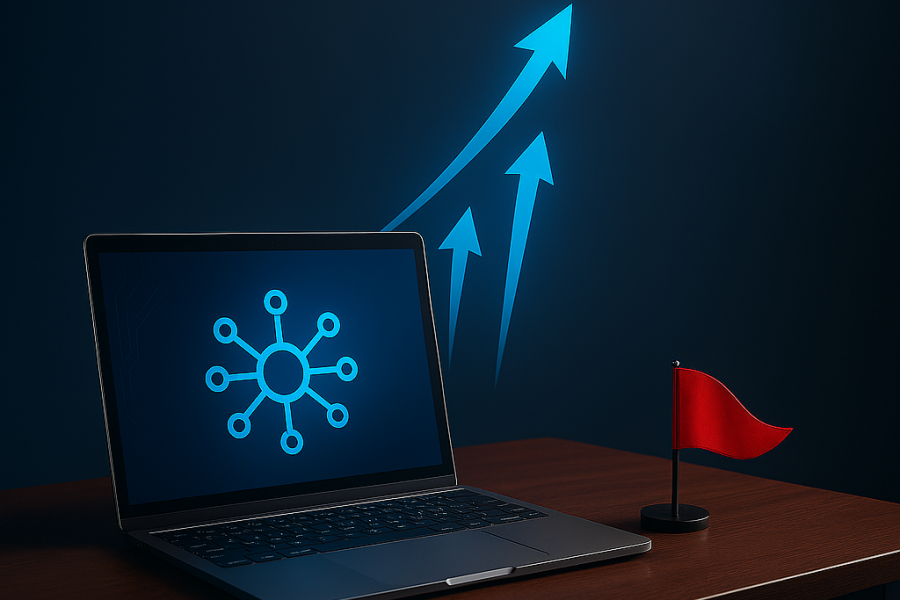In Nigeria and around the world, companies are rethinking their approach to work. They are shifting from manual processes to intelligent systems that can create, plan, decide, and act independently. The continuous advancement of Artificial Intelligence (AI) Technologies has led to the rise of Agentic AI; which is further transforming how organizations operate, scale, and compete.
What Is Agentic AI and Why It Matters
Agentic AI refers to intelligent systems capable of operating with minimal human oversight. These “agents” can make decisions, act on data, adapt to changing contexts, and improve with experience.
Unlike basic automation tools that only follow fixed commands, agentic AI can reason through multi-step tasks and anticipate needs.
Key features include:
- Decision-making without constant human input
- Adaptability to dynamic environments
- The ability to learn from feedback and outcomes
Why it is important: Agentic AI helps businesses achieve speed, accuracy, and efficiency while freeing people to focus on innovation and strategy.

A McKinsey & Company report indicates that organizations using autonomous systems can achieve an increase in productivity of up to 30% within the first year. This aligns with what global leaders like Microsoft describe as “the next era of business intelligence”.
How Nigerian Businesses Are Adopting Agentic AI
While global trends provide the framework, the Nigerian market presents a distinctive combination of opportunities and challenges that influence the implementation of autonomy.
Opportunities driving adoption include:
- Growing digital infrastructure: Urban centers like Lagos now have stronger broadband and cloud adoption, enabling cloud-based AI and real-time systems.
- Cost and efficiency pressure: Inflation and high labor costs are forcing businesses to do more with fewer resources.
- Data-rich industries: Fintech, logistics, and e-commerce sectors already collect data that can power agentic systems.
Practical local applications:
- Customer service bots that handle first-level inquiries and escalate complex issues
- Predictive analytics tools for inventory and logistics
- Automated reconciliation and compliance reporting in finance
- Marketing agents that identify leads and recommend campaigns automatically
Challenges Nigerian Businesses Must Address
- Infrastructure reliability: Power supply and internet connectivity can hinder real-time operations outside major cities.
- Investment cost: Initial deployment and maintenance costs for AI systems remain significant for SMEs.
- Regulation: Data protection and ethical frameworks are still evolving.
- Skills gap: There’s a shortage of local expertise in AI engineering and data management.
Strong digital foundations remain essential for any business adopting agentic AI. Why SMEs Must Take Cybersecurity Seriously, explains how secure data practices and resilient IT systems create the trust and stability needed to scale autonomous technologies effectively.

Steps Nigerian Businesses Can Take to Adopt Agentic AI
Transitioning from manual operations to autonomous systems is not an instantaneous process. A structured, incremental approach works best:
- Identify a clear pilot use case
Choose one area with measurable ROI — such as customer service or internal reporting.
- Collect and clean your data
Reliable, structured data is the backbone of any AI system.
- Leverage available cloud tools
Platforms from Microsoft Azure, AWS, and Google Cloud provide scalable, low-code AI tools suitable for local businesses.
- Establish human oversight
Every agentic system must have clear escalation paths, governance, and accountability.
- Upskill teams
Equip staff with AI literacy and system-monitoring skills to maintain trust and transparency.
- Measure and iterate
Track performance metrics — response time, error rate, cost savings — and refine continuously.
The Importance of Transitioning from Manual to Autonomous Operations for Businesses
- Faster delivery: Customers expect instant service.
- Resilience: Autonomous systems can adapt to supply chain disruptions or staff shortages faster.
- Innovation: By automating repetitive work, teams can focus on creative problem-solving.
- Sustainability: Smarter resource use means lower operational waste.
As discussed in AI in the Workplace, intelligent systems are transforming how people work. Agentic AI represents the next natural progression, making organizations more responsive while maintaining a human-focused approach.
For Nigerian businesses, particularly those in Lagos, agentic AI presents an opportunity for improved efficiency, adaptability, and sustainable growth. By beginning with small steps, investing in data management and governance, and utilizing both local expertise and global platforms, companies can confidently transition from manual processes to autonomous operations.
The change won’t happen all at once. But those who begin early, build responsibly, and align people with intelligent systems will define the next phase of business innovation in Nigeria. For more tips, insights, and updates like this, 📩 Subscribe to our newsletter






